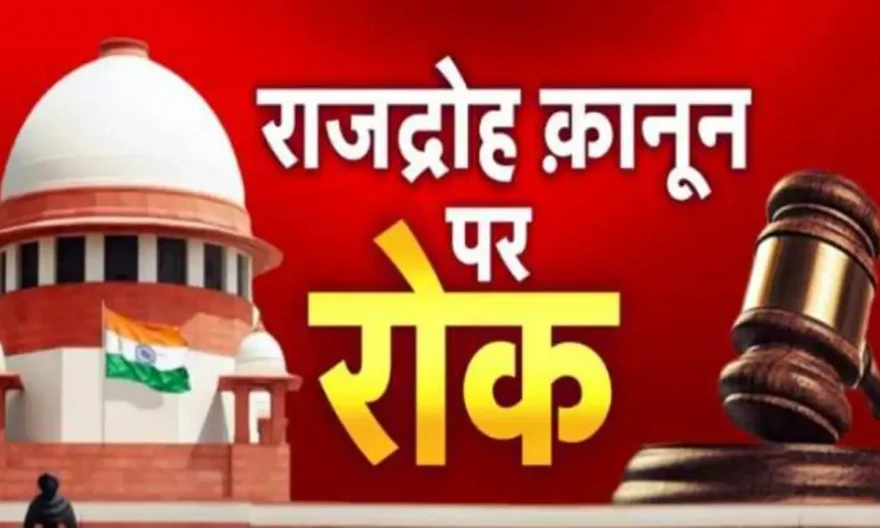
The sedition law will be debated in the Supreme Court after about 7 months and then possibly the sedition law itself may be abolished. On Wednesday, this week the Supreme Court will hear the sedition case made during the British era.
On May 11 last year, the Supreme Court had ordered a stay on all proceedings in sedition cases across the country till it is reviewed by an “appropriate” government forum. The Supreme Court had also directed the Central and State Governments not to register any new cases under this pre-independence law.
A bench of Chief Justice DY Chandrachud and Justice PS Narasimha listed for hearing on Wednesday 12 petitions, including one filed by the Editors Guild of India, against the law.
The maximum punishment under section 124A (sedition) of the Indian Penal Code is life imprisonment. It was included in the Penal Code in 1890, 57 years before the country’s independence and almost 30 years after the IPC was formed.
In the pre-independence period, the provision was invoked against freedom fighters such as Bal Gangadhar Tilak and Mahatma Gandhi.
A bench headed by the then Chief Justice (CJI) N V Ramana had ordered that apart from registration of FIRs, there would also be a stay on ongoing investigations, pending trials and all proceedings under the sedition law across the country. The bench had said, “the stringency of Section 124A (sedition) of the IPC is not commensurate with the prevailing social environment”. The bench had said, ‘We expect that till the re-examination of this provision is completed, it would be appropriate for the governments not to continue to use the said provision of law.
At that time, the Supreme Court had said that any affected party is at liberty to approach the courts concerned and requested the courts to consider the applications for relief considering the present order. The court had said, “All pending litigation, appeals and proceedings in respect of the charges framed under section 124A of the IPC shall be stayed.” A decision can be taken regarding other sections, if the courts are of the opinion that the accused will not be prejudiced.
The bench did not agree with the Centre’s suggestion of assigning a Superintendent of Police (SP) rank officer the responsibility of monitoring FIRs lodged on charges of sedition. According to the National Crime Records Bureau (NCRB) data, 356 cases of sedition were registered in the country between 2015 and 2020 and 548 people were arrested. However, only 12 people arrested in seven sedition cases were convicted during this six-year period.
However, only 12 people arrested in seven sedition cases were convicted during this six-year period.




